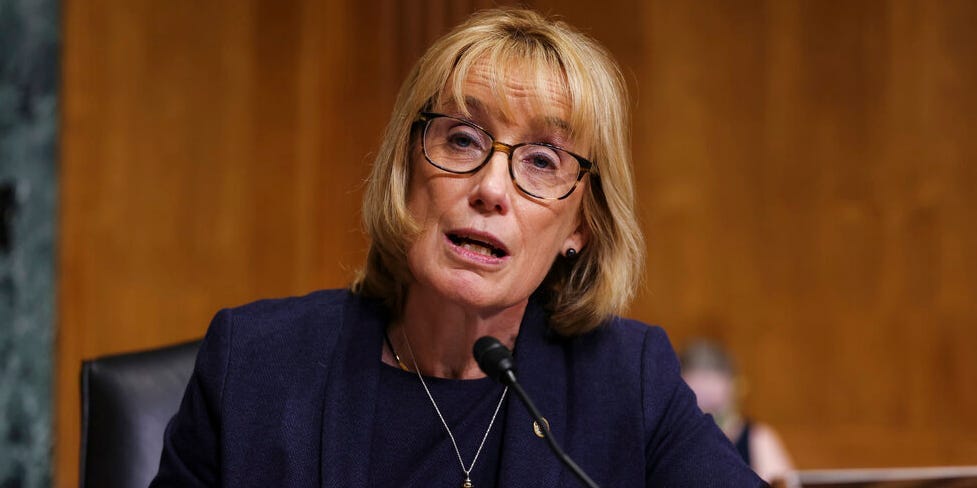A senator is demanding answers from Spotify about its handling of fake podcasts that promoted opioids and other prescription drugs.
In the wake of a Business Insider investigation that found 200 phony podcasts on Spotify advertising the sale of pills, often without a prescription, Sen. Maggie Hassan of New Hampshire urged the digital music and podcast company to moderate its content better.
Some of the podcasts were removed after BI previously flagged them to Spotify.
“I urge you to take action to prevent fake podcasts that facilitate the illicit sale of drugs — including those that could contain fentanyl — from appearing on your platform,” the two-term Democratic lawmaker said in a letter to Spotify CEO Daniel Ek.
“Addressing these threats requires an all-hands-on-deck approach, and based on recent reports, Spotify has not exercised the level of diligence needed,” she continued.
Spotify didn’t immediately respond to a request for comment. Earlier this month, in response to BI’s investigation, a Spotify spokesperson said: “We are constantly working to detect and remove violating content across our service.”
Many lawmakers across the United States have long sought to address the scourge of opioid abuse, which increasingly comes in the form of fentanyl.
Fentanyl trafficking is a major issue for President Donald Trump, who has accused Mexico, Canada, and China of allowing the drug to be transported into the United States. Trump imposed tariffs on those countries in part to force them to do more to stem the flow of fentanyl.
In her letter, Hassan, a former governor, spoke of the “heart-wrenching conversations” that she’s had with constituents in her state who’ve lost family members or friends to drug overdoses.
“The scale of the fentanyl crisis requires cooperation among law enforcement, online platforms, and international partners to protect our communities,” she said.
Hassan also asked Spotify to detail its moderation tools and policies and inquired about the number of drug-related podcasts it has had to remove. She asked whether the platform received any revenue from the removed podcasts.
The lawmaker, who serves on the Senate Homeland Security and Governmental Affairs committee, gave Spotify until June 12 to respond to her inquiries.
“We are constantly working to detect and remove violating content across our service,” a Spotify spokesperson said in response to BI’s investigation.
Read the full letter here:


